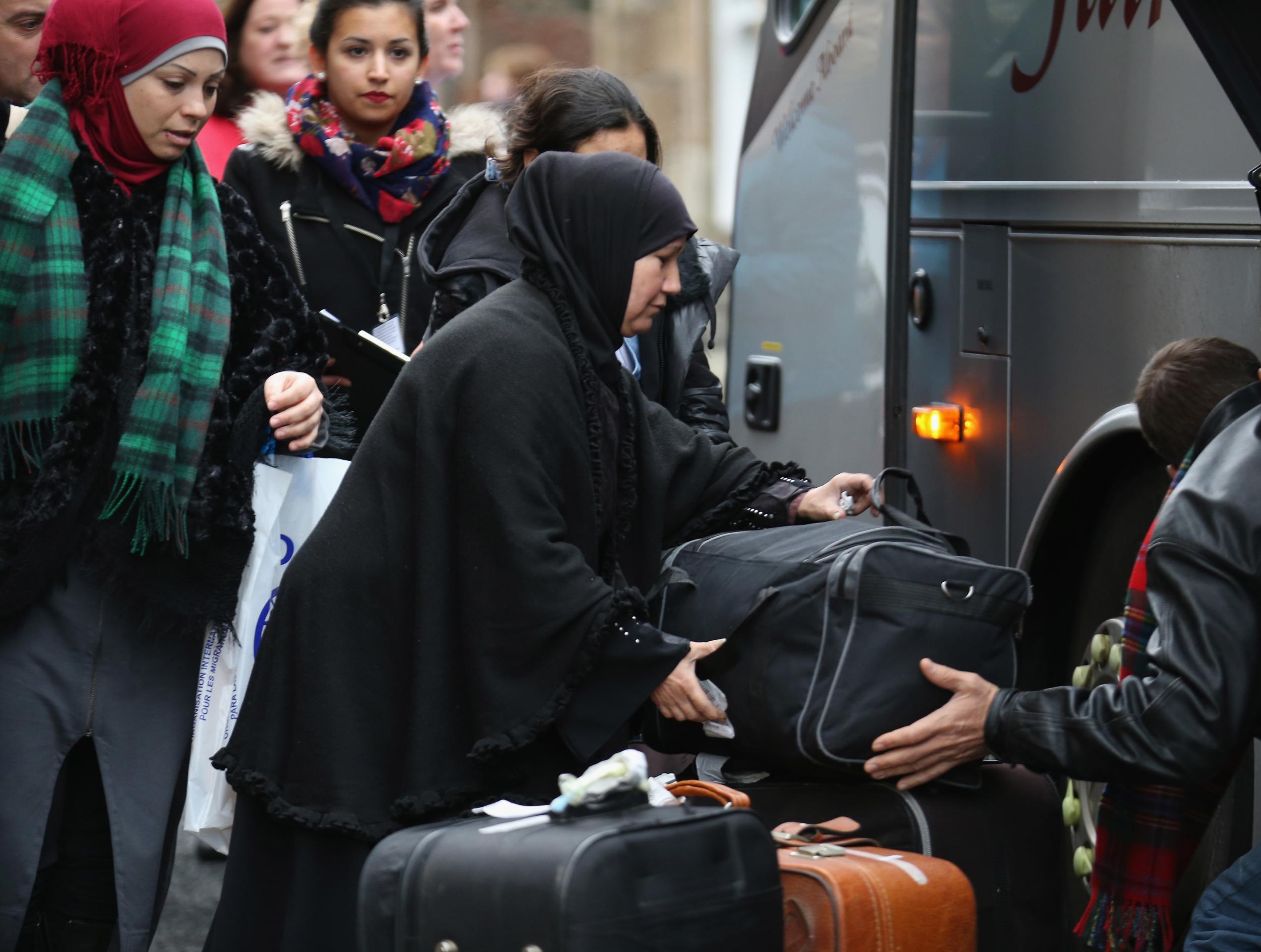Refugees could be given right to vote in Scotland
Holyrood was granted more devolved powers in 2016, including more control over its own regional and local elections

Your support helps us to tell the story
From reproductive rights to climate change to Big Tech, The Independent is on the ground when the story is developing. Whether it's investigating the financials of Elon Musk's pro-Trump PAC or producing our latest documentary, 'The A Word', which shines a light on the American women fighting for reproductive rights, we know how important it is to parse out the facts from the messaging.
At such a critical moment in US history, we need reporters on the ground. Your donation allows us to keep sending journalists to speak to both sides of the story.
The Independent is trusted by Americans across the entire political spectrum. And unlike many other quality news outlets, we choose not to lock Americans out of our reporting and analysis with paywalls. We believe quality journalism should be available to everyone, paid for by those who can afford it.
Your support makes all the difference.The Scottish government is considering allowing refugees and non-EU citizens to vote in local and Scottish parliament elections.
Holyrood was granted new powers over taxation and the running of elections by Westminster in 2016 and the SNP minority government is keen to make major changes that will set it apart from the rest of the UK.
A public consultation launched last month suggested extending the voting franchise to “everyone legally resident in Scotland”.
This would mean anyone granted asylum or a visa to live in Scotland would be able to vote in the country’s regional parliament and local council elections – including refugees and non-EU or non-Commonwealth citizens.
The extension of the franchise would not include Westminster elections as these are still controlled by the Government in London.
The Scottish minister for parliamentary business, Joe FitzPatrick, said: “The Scottish government is committed to ensuring access to democratic participation for all citizens. Scotland has led the way internationally by lowering the voting age to 16.
“We now seek to extend the opportunity to vote to all who are legally resident in Scotland. It seems only fair that those who have the right to live here, whether from EU countries or elsewhere, have the right to vote.”
He said there was a “view” that the current rules on suffrage did not reflect modern Scotland and “that linking citizenship with the right to vote is undemocratic”.
“As citizens from a very wide range of countries come to live and work in Scotland, it can be considered discriminatory to deny the right to vote to resident immigrants who are neither EU nor Commonwealth citizens”, he added.
The public consultation is due to close 12 March.
The Scottish Refugee Council hailed the move which they said would help many rebuild their lives in the country.
The charity’s policy officer, Graham O’Neill, told The Scotsman: “There is no reason why refugees who are rebuilding their lives here should have fewer rights than the rest of us.
“They are our colleagues and friends and contribute a huge amount to Scottish society.
“I’m sure a lot of the people we work with would relish the chance to participate in elections and have a say on how to build a fairer society.”
Scotland is perceived as more open to immigration and the arrival of refugees than the rest of the UK.
The country, along with Northern Ireland, voted to remain in the European Union during the referendum in 2016 and the SNP has repeatedly called for more powers on immigration and trade.
In a speech in Edinburgh in September last year, First Minister Nicola Sturgeon called for greater flexibility for Scotland when it comes to regulating immigration.
Speaking on the 20th anniversary of the devolution referendum, which led to the establishment of the Scottish parliament, she called the Westminster plan to reduce net migration to the “tens of thousands” an “ideological” target that could have “devastating consequences for our economy and society”.

Instead, Scotland should offer “a welcoming hand and an open heart to those seeking a better life or wanting to make a contribution here”, she added.
According to a 2014 report by the Office for National Statistics, Scotland’s population is expected to stagnate over the next 25 years if there is “low net migration” with the overall population projected to grow by just 3,500 people – or 0.07 per cent – every year.
This means the country will increasingly suffer from a major labour shortage as it tries to prop up its economy, the NHS and its social services if it cannot bring in a migrant workforce.
Subscribe to Independent Premium to bookmark this article
Want to bookmark your favourite articles and stories to read or reference later? Start your Independent Premium subscription today.
Join our commenting forum
Join thought-provoking conversations, follow other Independent readers and see their replies
Comments